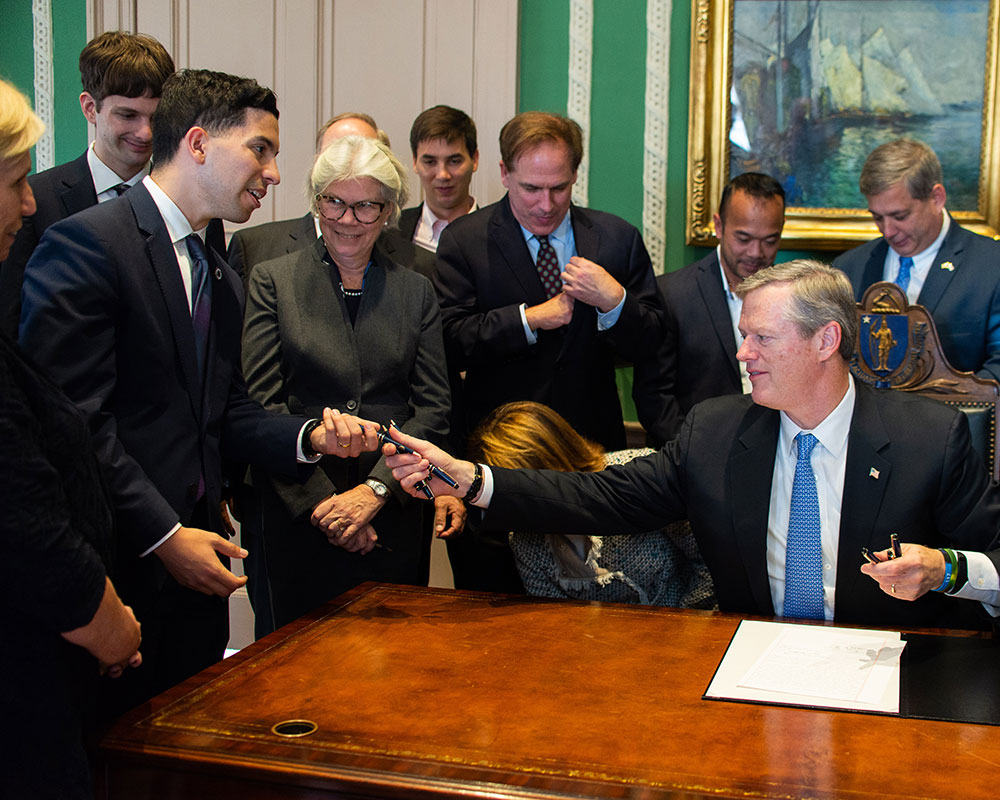The state legislature and Gov. Charlie Baker have differing opinions on who should determine how new federal COVID-19 aid gets distributed.
State Rep. Andy X. Vargas, a recent guest on WHAV’s morning program, said Baker had “full latitude” on how to spend the money during the emergency, but now the legislature wants a say.
“We in the legislature, as the purse of state government, felt we had a role and responsibility to make sure we were overseeing how those funds were being spent, particularly since the state of the emergency has ended. You’ll recall that the CARES Act, which was the first stimulus round that the federal government did, the legislature provided the governor with a lot of latitude to spend that money because we were in a state of emergency. And, now that the governor has ended the state of emergency, we feel like we have a responsibility in the legislature to make sure we have a transparent and open conversation about how that funding is getting invested into our community,” he said.
Vargas says the legislature will be holding hearings to take a methodical approach spending the federal funds, adding that there isn’t a rush to spend the money, because state revenues are in good shape—a situation he was surprised to learn. Vargas said he didn’t think the recovery would be this fast and this strong—and he credits a couple of reasons for why it’s happening.
“Two years before the pandemic hit, the state of Massachusetts implemented the online sales tax. You might remember brick and mortar retail businesses were unfairly being taxed the sales tax while the sales tax online wasn’t being enforced. So many purchases were happening online that weren’t subject to the sales tax, and that was decreasing revenue for the state. And, in the wake of the pandemic, everyone was ordering things online and that revenue stream helps keep the government afloat for some time,” he said.
Vargas says the other reason for the state’s economic recovery rests with the healthcare and bio-pharmaceutical sectors.
“Both of those sectors were critical to getting through this pandemic towards developing a vaccine. Because of that, we did okay as we rode through this wave, but the reality is that while the state revenues may be good and the recovery may be good on the macro level, there are still a lot of people that are still hurting. A lot of people that are suffering with food insecurity. They can’t find a home to rent or to buy and there are small businesses that are struggling to make payment on unemployment insurance and so many other costs that were rising for them through this pandemic. So, we have a lot of work to do. Nobody’s doing a victory lap and saying “mission accomplished” but it is worth celebrating the milestones and the milestone we are at right now is we are on the up and up when it comes to an economic recovery,” he added.
On another topic, Vargas said Haverhill will be receiving $1.5 million in state Chapter 90 state aid, giving the city additional money for repairing roads, potholes and other infrastructure.
Besides WHAV.net, WHAV’s “Merrimack Valley Newsmakers” podcasts are available via Apple Podcasts, Amazon Music, Spotify, Stitcher, iHeart Radio, Google Podcasts, TuneIn and Alexa.
